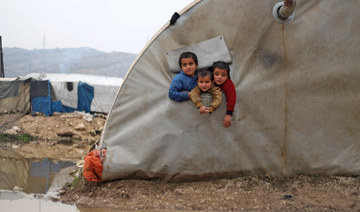The US-backed and Kurdish-led forces in northern Syria said Tuesday that they will turn to the government in Damascus for support should Turkey go ahead with its threat to launch a new incursion into the war-torn country.
The Kurdish-led Syrian Democratic Forces said after a meeting of its command that its priority is to reduce tension near the border with Turkey but also prepare for a long fight if Ankara carries out its threat.
The announcement appears to be a message directed at the US and meant to elicit pressure from Washington on Turkey’s President Recep Tayyip Erdogan to put aside his offensive plans.
FASTFACTS
• The Kurdish-led Syrian Democratic Forces said after a meeting of its command that its priority is to reduce tension near the border with Turkey but also prepare for a long fight if Ankara carries out its threat.
• The announcement appears to be a message directed at the United States and meant to elicit pressure from Washington on Turkey’s President Recep Tayyip Erdogan to put aside his offensive plans.
Erdogan has repeatedly said over the past weeks that he’s planning a major military operation to create a 30-km deep buffer zone inside Syria along Turkey’s border, through a cross-border incursion against US-allied Syrian Kurdish fighters — an attempt that failed in 2019.
Analysts have said Erdogan is taking advantage of the war in Ukraine to push his own goals in Syria — even using Turkey’s ability as a NATO member to veto alliance membership by Finland and Sweden as potential leverage.
On the ground, the situation has been tense with near-daily exchanges of fire and shelling between the US-backed Syrian Kurdish fighters on one side and Turkish forces and Turkey-backed Syrian opposition gunmen on the other.
The Turkey-backed Syrian opposition fighters have been preparing for weeks to take part in the expected operation against Syrian Kurdish-led forces, seeking to expand their area of influence inside Syria.
On the other hand, relations between the Kurdish-led fighters who control large parts of northern and eastern Syria — including the towns of Tel Rifaat and Manbij that Erdogan has named as possible targets — with the Syrian President Bashar Assad’s forces have been mostly frosty over the past years.
But faced with Erdogan’s threat, Syrian Kurdish fighters may want those ties to thaw.
“The meeting confirmed the readiness of Syrian Democratic Forces to coordinate with forces of the Damascus government to confront any possible Turkish incursion and to protect Syrian territories against occupation,” the statement said and added that a “possible Turkish invasion will affect the stability and unity of Syria’s territories.”
The statement did not elaborate on what such a coordination entailed — and whether an alliance with the Assad regime in Damascus would translate into joint forces on the ground.
Since 2016, Turkey has launched three major operations inside Syria, targeting Syria’s main Kurdish militia — the People’s Protection Units or YPG — which Turkey considers to be a terrorist organization and an extension of Turkey’s outlawed Kurdistan Workers’ Party, or PKK. The PKK has for decades waged an insurgency within Turkey against the government in Ankara.
The YPG, a backbone of the SDF, has led the fight against the militants of Daesh and has been a proven top US ally in Syria.
























